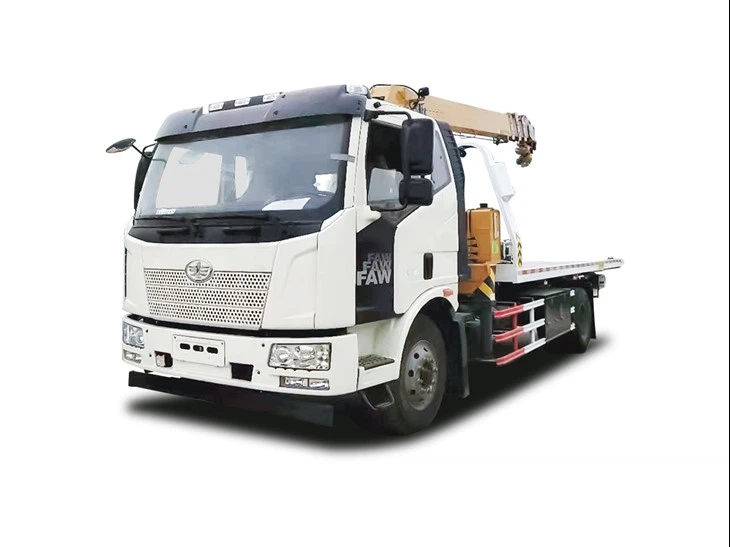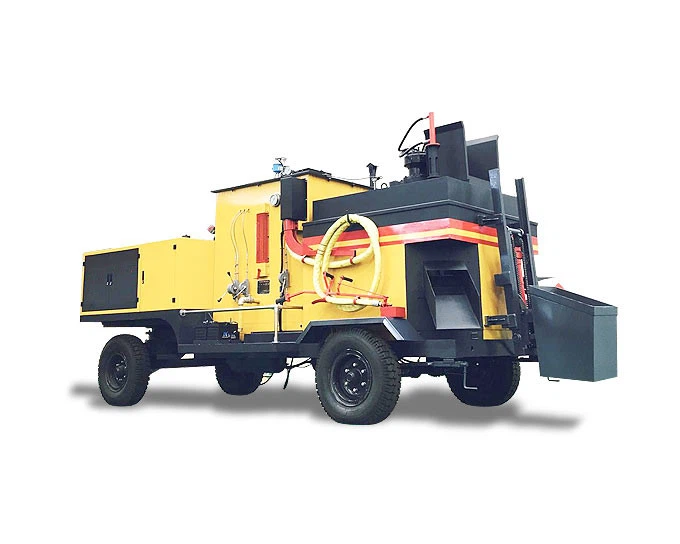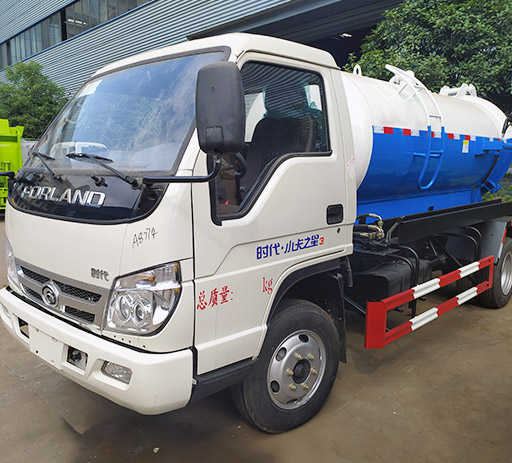The Ultimate Guide to Garbage Truck Manufacturers

Introduction
Garbage trucks play a crucial role in waste management, ensuring that our communities remain clean and environmentally friendly. The demand for these vehicles has steadily increased as cities and businesses strive for effective waste management solutions. This comprehensive article explores leading garbage truck manufacturers, the types of garbage trucks they produce, innovation in the industry, and practical tips for choosing the right garbage truck. Whether you are a city planner, business owner, or just curious about how waste is collected, this guide will provide valuable insights.
Understanding the Garbage Truck Market
The garbage truck market has seen significant growth due to increasing urbanization and the rising need for efficient waste disposal methods. Various manufacturers are focusing on advanced technologies to make garbage collection safer, more efficient, and environmentally friendly. Below are key factors influencing the garbage truck market:
1. Urbanization and Population Growth
As populations grow in urban areas, the demand for waste collection rises. This necessitates the production of more garbage trucks. Urbanization not only increases the volume of waste but also necessitates more vehicles that can navigate congested streets.
2. Environmental Regulations
Governments worldwide are implementing stricter environmental regulations. As a result, manufacturers are investing in eco-friendly technologies and alternative fuel options for garbage trucks, such as electric and hybrid vehicles.
3. Technological Advancements
Modern garbage trucks incorporate innovative technologies, including GPS for route optimization, telematics for vehicle monitoring, and automation for enhanced efficiency. These advancements are reshaping the garbage truck manufacturing landscape.
Top Garbage Truck Manufacturers
Below is a highlight of some leading garbage truck manufacturers known for their quality, innovation, and reliability.
1. Volvo Trucks
Volvo Trucks is a global leader in manufacturing trucks, including garbage collection vehicles. Their garbage trucks are noted for:
- Fuel efficiency
- Safety features
- Advanced telematics

2. Mack Trucks
Mack Trucks is well-recognized in the waste collection sector. Key features of Mack garbage trucks include:
- Durability and reliability
- Powerful engines
- Customizable options for different waste collection needs
3. Kenworth
Kenworth, a subsidiary of PACCAR, offers a range of garbage trucks designed for performance and efficiency. Their trucks feature:
- Ergonomic designs for operator comfort
- Advanced safety technologies
- Various configurations for specific waste types
4. Peterbilt
Peterbilt is another major player in the garbage truck market, known for its innovation and design. Highlights include:
- High resale value
- Innovative chassis designs
- Fuel-efficient engine options
5. Freightliner

Freightliner specializes in heavy-duty trucks, including garbage trucks. Their models are praised for:
- Performance reliability
- Eco-friendly solutions
- Easy maintenance features
Types of Garbage Trucks
Garbage trucks come in various types, each designed for specific waste collection needs. Understanding the options can aid in selecting the right vehicle for your requirements.
1. Front Loader Trucks
Front loader trucks are commonly used for commercial waste management. They feature a front-loading system that allows for quick and efficient loading of dumpsters.
Advantages of Front Loader Trucks
- High capacity for large loads
- Efficient loading mechanism
- Suitable for high-density areas
2. Rear Loader Trucks
Rear loader trucks are versatile and suitable for both residential and commercial waste collection. They are characterized by a rear loading system where waste is collected from the back.
Advantages of Rear Loader Trucks
- Ability to collect waste from narrow streets
- Lower operating costs
- Flexible usage
3. Side Loader Trucks
Side loader trucks are designed for automated waste collection. They feature mechanical arms to pick up waste bins from the side, reducing the need for manual labor.
Advantages of Side Loader Trucks
- Increased safety for operators
- Efficient route management
- Reduced handling time
4. Compact Garbage Trucks
Compact garbage trucks are smaller and designed for collecting waste in urban areas with limited space. They are particularly useful for alleyways and narrow streets.
Advantages of Compact Garbage Trucks
- Agility in congested areas
- Easier to park and maneuver
- Lower emissions due to smaller engines
Innovation in Garbage Truck Manufacturing
The garbage truck industry is evolving with innovative technologies aimed at improving efficiency, safety, and environmental impact. Some key trends include:
1. Electric and Hybrid Garbage Trucks
Many manufacturers are investing in electric and hybrid models to reduce reliance on fossil fuels and minimize emissions. These vehicles often have lower operating costs in the long run.
2. Automation and Robotics
Automation technology is transforming garbage collection, with robotic arms enabling side-loading trucks to operate with minimal human intervention. This increases efficiency and worker safety.
3. Smart Routing and Tracking
Garbage trucks equipped with GPS and tracking software can optimize routes in real time, reducing fuel consumption and improving service delivery times.
Practical Tips for Choosing the Right Garbage Truck
Selecting the right garbage truck for your needs is crucial for effective waste management. Here are some practical tips:
1. Assess Your Needs

Determine the type and volume of waste you need to collect. This will help you decide on the size and type of truck.
2. Consider Environmental Impact
Explore options for eco-friendly garbage trucks, such as those powered by alternative fuels or electric engines, to reduce your carbon footprint.
3. Evaluate Cost vs. Performance
While an upfront cost may be important, consider long-term value in terms of maintenance, fuel efficiency, and longevity of the garbage truck.
4. Look for Customization Options
Some manufacturers offer customization to meet specific operational needs. Ensure that your chosen truck can be tailored accordingly.
Future Trends in Garbage Truck Manufacturing
The garbage truck industry is poised for several exciting trends in the coming years:
1. Increased Use of AI and Machine Learning
Artificial intelligence can improve waste sorting and route optimization, making garbage collection more efficient and effective.
2. Sustainable Manufacturing Practices
Manufacturers are expected to adopt sustainable practices in production, sourcing recyclable materials, and reducing waste during manufacturing.
3. Enhanced Safety Features
Future garbage trucks will likely include advanced safety features, such as better visibility for drivers and automatic braking systems to avoid accidents.
FAQ Section
1. What are the standard sizes of garbage trucks?
Garbage trucks typically come in sizes ranging from 10 to 30 cubic yards, depending on the type of truck and its intended use.
2. How often should garbage trucks be serviced?
Regular maintenance should be conducted at least every 6 months or after accumulating a specific number of miles, depending on usage and manufacturer recommendations.
3. Are there electric garbage trucks available?
Yes, numerous manufacturers are developing electric garbage trucks as part of their commitment to sustainability and reducing emissions.
4. What safety features are essential in garbage trucks?
Essential safety features include backup cameras, parking brakes, reflective markings, and advanced braking systems to enhance visibility and prevent accidents.
5. How can municipalities assess the efficiency of their garbage trucks?
Municipalities can monitor fuel consumption, track maintenance costs, and evaluate service delivery times to assess the efficiency of their garbage trucks.
6. Can garbage trucks be customized to fit specific needs?
Many manufacturers offer customization options, allowing municipalities and businesses to tailor garbage trucks for specific waste management requirements.
